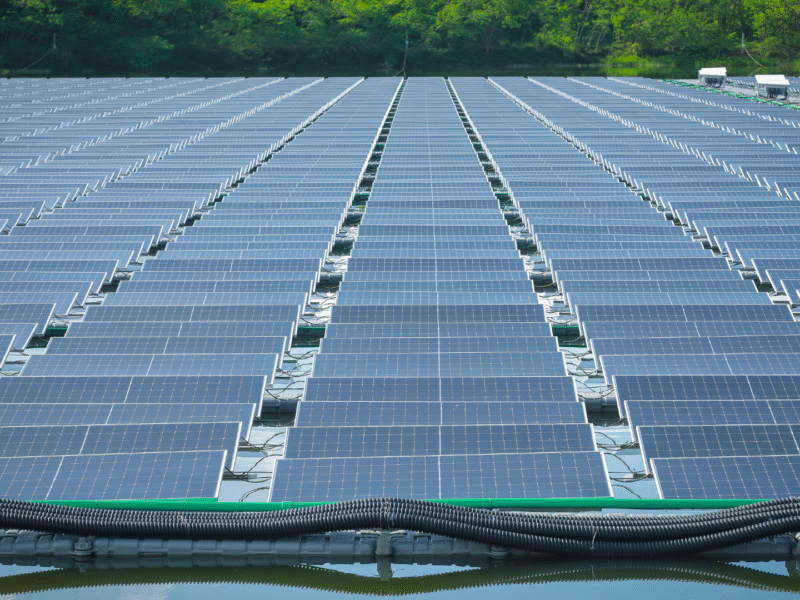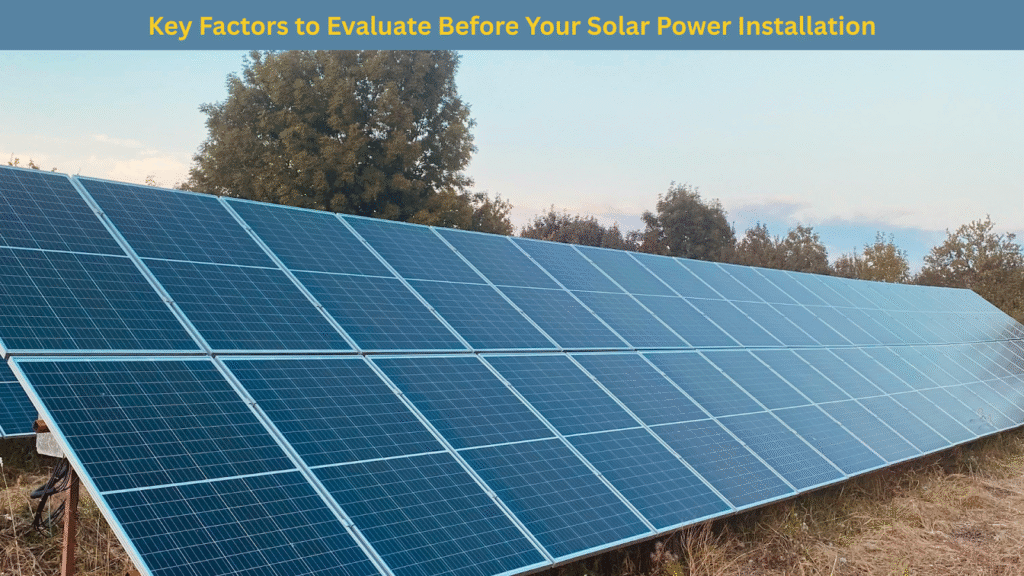
Are you considering a solar power installation for your home or business? It’s a fantastic investment in a cleaner, more sustainable future. However, the success and longevity of your solar system depend heavily on one crucial decision: choosing the right installation company.
With a growing number of providers, sorting through the options can be overwhelming. This comprehensive guide will walk you through the essential factors to consider, ensuring your solar power installation is seamless, efficient, and delivers maximum returns.
Why Your Choice of Installer Matters

Your solar power installation is a long-term relationship, not just a one-time purchase. The chosen company is responsible for everything from the initial site assessment and system design to the final installation and post-installation support. A reputable company uses high-quality equipment, follows strict safety standards, and provides reliable service. A poor choice, however, could lead to an underperforming system, invalid warranties, and a lot of headaches.
Doing your homework is the most important step in your solar journey.
Key Factors to Evaluate Before Your Solar Power Installation

When you begin your search for a company, focus on these critical areas. Each point is designed to help you vet potential partners and make an informed decision about your solar power installation.
1. Experience and Reputation of Your Solar Power Installer
Experience is a powerful indicator of a company’s expertise. How long have they been in business? A company with a track record of several years likely has a deeper understanding of local regulations, weather patterns, and different roof types.
- Check their Portfolio: Ask to see past projects. Do they have experience with installations similar to yours?
- Read Customer Reviews: Go beyond their website. Check independent platforms like Google Reviews and the Better Business Bureau. Look for consistent positive feedback and how the company handles negative reviews.
2. Certifications and Licensing
A licensed and certified installer provides peace of mind. These credentials show that the company meets industry standards for quality and safety.
- Local and State Licenses: Ensure the company is licensed to perform electrical and construction work in your area. This is a non-negotiable requirement.
- Industry Certifications: Look for certifications from reputable organizations. For example, in India, accreditation from the Ministry of New and Renewable Energy (MNRE) is a strong sign of legitimacy.
3. Equipment Quality and Warranty
The components of your solar system—panels, inverters, and mounting hardware—determine its performance and longevity. A good company will be transparent about the brands they use and their respective warranties.
- Tier-1 Solar Panels: Ask if they use Tier-1 solar panels from globally recognized manufacturers. These brands are known for their efficiency and reliability.
- Performance and Product Warranties: Understand both types of warranties. A product warranty covers manufacturing defects (typically 10-12 years), while a performance warranty guarantees the panels will produce a certain percentage of their rated power after 25 years. A solid company offers both.
4. The Proposal and Pricing Transparency
A detailed and transparent proposal is a sign of a trustworthy installer. It should clearly outline all costs and what is included in the service.
- Itemized Breakdown: The proposal must include a complete itemized list of costs, from equipment and labor to permits and fees. Beware of proposals that offer a single lump sum without any detail.
- Understanding the Price: The cheapest quote isn’t always the best. A low price might indicate low-quality equipment or a lack of proper licensing. Compare multiple quotes and look for the best value, not just the lowest price.
5. In-House vs. Subcontracted Labor
This is a critical point that can significantly impact the quality of your solar power installation.
- In-House Crews: Companies that use their own, full-time installation teams often have better quality control, consistency, and accountability.
- Subcontractors: While many reputable companies use subcontractors, it can sometimes lead to a disconnect in communication. Ask about the experience and training of the crew that will be working on your property.
Comparison Table: Choosing Your Solar Installer
| Feature | What to Look For | Why It Matters |
| Experience | 5+ years of operation and a portfolio of successful projects. | Indicates stability and expertise. |
| Certifications | Valid licenses and industry accreditations (e.g., MNRE). | Guarantees compliance with safety and quality standards. |
| Equipment | Use of Tier-1 solar panels, quality inverters, and a clear product list. | Ensures system efficiency and durability. |
| Warranties | Comprehensive product and performance warranties. | Protects your long-term investment. |
| Installation Crew | In-house, certified installation teams. | Provides greater quality control and accountability. |
| Pricing | Detailed, itemized proposal with no hidden costs. | Ensures financial transparency. |
| Reviews | Consistent positive reviews on third-party sites. | Reflects the company’s real-world reputation. |
Making Your Final Decision

Once you have a list of potential companies, contact at least three for a site visit and a quote. During these meetings, pay attention to their communication style. A good company will take the time to answer all your questions and provide a clear, easy-to-understand proposal.
Ultimately, your goal is to find a partner you can trust. By evaluating experience, certifications, equipment, pricing, and the installation team, you’ll be well-equipped to choose the right company for a successful solar power installation that will serve you for decades to come.
FAQ Section: Your Questions About Solar Power Installation Answered
Q1: How long does a typical solar power installation take?
A: The installation itself can often be completed in 1-3 days for a standard residential system. However, the entire process, including site assessment, permits, and design, can take anywhere from 4 to 12 weeks.
Q2: Do solar panels work on a cloudy day?
A: Yes, solar panels still work on cloudy or rainy days, but their efficiency decreases. They can still produce around 10-25% of their normal output. Modern panels are designed to perform well in low-light conditions.
Q3: What kind of maintenance is required for a solar power installation?
A: Solar systems are surprisingly low-maintenance. The main requirement is keeping the panels clean. Rain often does the job, but a professional cleaning a couple of times a year is a good idea, especially in dusty areas. You should also have a professional check the system annually.
Q4: Do solar panels increase the value of my home?
A: Yes, studies have consistently shown that an owned solar power installation can significantly increase a home’s resale value. Potential buyers are often willing to pay more for a home that already has a money-saving and eco-friendly solar system.
Q5: What are the main components of a solar power installation system?
A: A basic system consists of:
Electrical Wiring: To safely connect the system to your home’s electrical panel.
Solar Panels: To convert sunlight into DC electricity.
Inverter: To convert the DC electricity into usable AC electricity.
Mounting System: The hardware that secures the panels to your roof.

